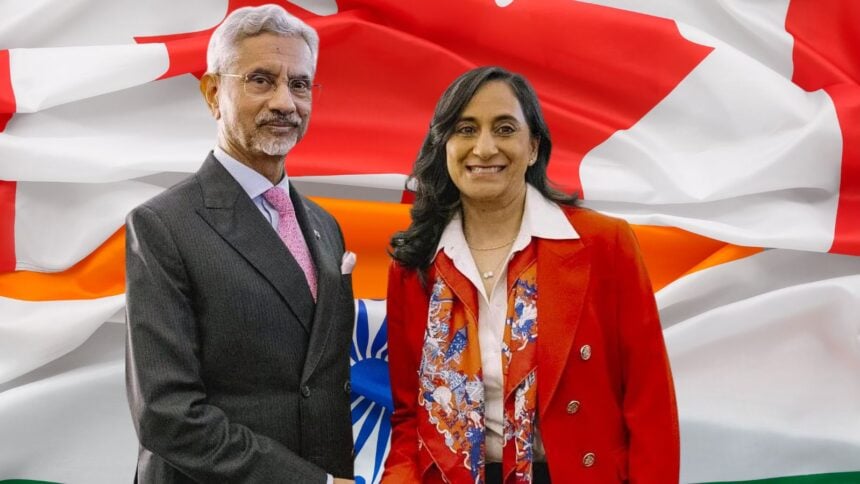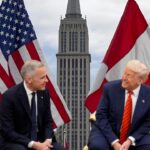India and Canada signaled a measured rapprochement on Monday as Canadian Foreign Minister Anita Anand met India’s External Affairs Minister S. Jaishankar in New Delhi and the two sides released a joint statement laying out a new roadmap for the relationship.
The statement, issued during Anand’s October 12 to 14 visit, frames trade, investment and the Indo Pacific as organizing pillars for renewed engagement after a year of strain.
The roadmap lands alongside a sequence of confidence-building steps taken in recent weeks, including the reinstatement of high commissioners on August 28 and meetings between national security advisers and senior officials in September.
Those moves were presented as follow through on guidance from the countries prime ministers to restore stability and pursue a balanced partnership based on mutual sensitivities and growing economic complementarities.
Prime Minister Narendra Modi also received Anand on Monday. The Prime Minister’s Office said in a press release, “her visit would contribute to ongoing efforts to impart new momentum to the India-Canada bilateral partnership.”
The encounter underscores political buy in for the reset and gives both bureaucracies cover to advance the technical work now spelled out in the roadmap.
Energy transition and critical minerals featured prominently, along with agri-food value chains, climate collaboration and responsible uses of artificial intelligence.
The joint statement also flagged security and law-enforcement cooperation, areas that have been sensitive but are essential to rebuilding trust.
Canada has sought a steadier role in the region, and India has encouraged like minded partners to engage more deeply in maritime security, resilient supply chains and standards setting.
Positioning the Indo Pacific as shared terrain allows Delhi and Ottawa to make progress where interests clearly overlap, even as they manage disagreements elsewhere.
Diplomatically, the outreach follows one of the lowest points in the modern relationship and reflects a pragmatic decision to limit the spillover into the wider economic agenda.
Both capitals emphasized process and pacing, suggesting the reset will proceed step by step rather than via a single breakthrough.
This calibration increases the odds of durability by matching political rhetoric with deliverables that can be verified over the coming months.


















